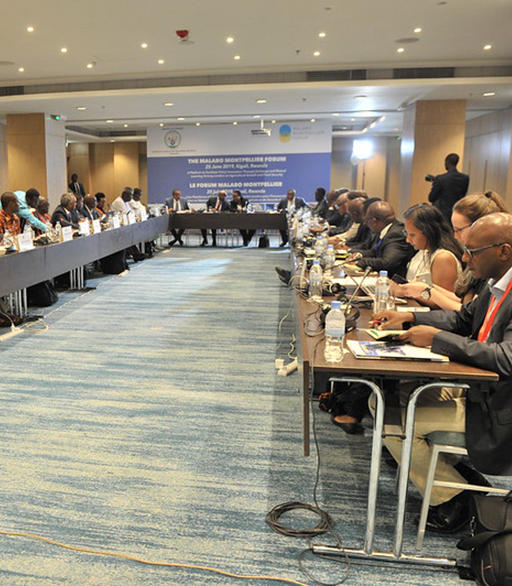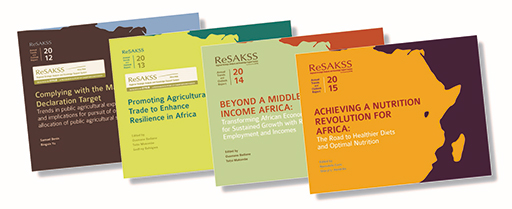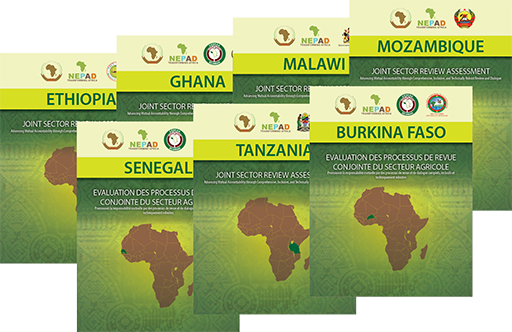Mission and Vision
MISSION
AKADEMIYA2063’s overall mission is to create, across Africa and led from Rwanda, state-of-the art technical capacities to support the efforts by the Member States of the African Union to achieve the key goals of the agenda 2063 of transforming national economies to boost growth and prosperity.
GOALS
The main goal of AKADEMIYA2063 is to help meet the needs of African countries in terms of data, analytics and mutual learning for the effective implementation of Agenda 2063 and the realization of its outcomes by a critical mass of member states.
CORE PROGRAMS
AKADEMIYA2063 supports evidence-based agricultural policymaking in Africa through three core programs: the Regional Strategic Analysis and Knowledge Support System (ReSAKSS), the African Growth and Development Policy (AGRODEP) Modeling Consortium, and the Malabo Montpellier (MaMo) Panel and Forum.
ReSAKSS

ReSAKSS supports the successful implementation of CAADP, Africa’s continent-wide framework for agricultural development and transformation. The objective of ReSAKSS is to strengthen institutional and technical capacities in Africa for evidence-based planning, implementation, monitoring, mutual accountability, review, and dialogue at the country and regional levels in support of CAADP implementation, and in particular, the new and expanded agenda under the Malabo Declaration. ReSAKSS carries out a broad range of activities, including
- Tracking progress on core CAADP indicators and disseminating information through its interactive website and its flagship publication, the Annual Trends and Outlook Report;
- Strengthening Mutual Accountability process through support to agricultural joint sector reviews and the continental Biennial Review;
- Providing analysis to guide the design of National Agriculture Investment Plans; and
- Strengthening capacities for evidence-based policymaking by establishing country Strategic Analysis and Knowledge Support Systems as well as carrying out collaborative work with in-country partners and organizing training sessions, workshops and conferences.

AGRODEP
AGRODEP is an initiative aimed at positioning African experts to take a leadership role in the study of strategic development questions and the broader agricultural growth and policy debate facing African countries. The resources and opportunities provided by AGRODEP help to equip African countries with the tools to perform science-based research that will enable them to formulate sound and effective policies. Through a competitive process, the most talented experts across Africa are mobilized and supported with training, mentoring and grant making to further sharpen their skills. Members also have access to a shared modeling infrastructure, a common database platform, and opportunities to work collaboratively within communities of practitioners in Africa and with other leading scientists globally. Through AGRODEP’s Policy Analysis and Advisory Services component, AGRODEP experts are deployed and backstopped with data and tools to respond to analytical needs for policy planning and implementation by continental and regional organizations, governments, civil society organizations and private sector operators.

MaMo Panel and Forum
The MaMo Panel supports evidence-based dialogue though its technical reports that identify areas of progress and positive change across the continent as well as institutional and policy innovations that can be replicated and scaled up in other countries. The Panel’s two yearly reports help to inform and guide policy choices to accelerate progress toward the ambitious goals of the African Union Commission’s Agenda 2063, the Malabo Declaration, and the global development agenda. The related MaMo Forum uses the evidence produced by the Panel to facilitate dialogue and exchange among high-level decision-makers on African agriculture, nutrition, and food security. The Forum serves as a platform to bring research into use at cross-country or continental levels, and creates a space for African leaders to exchange directly with peers as well as nongovernmental actors on issues of strategic importance in a context that is free from national pressures.
